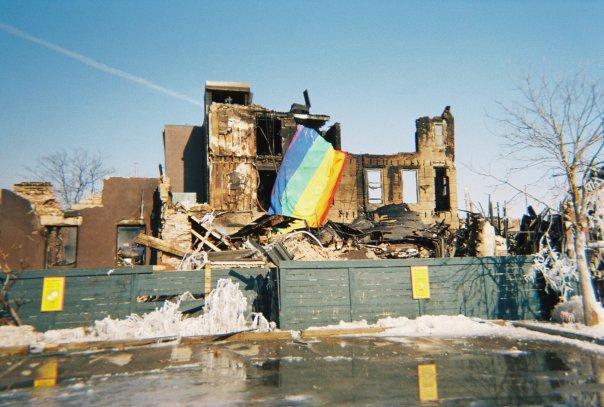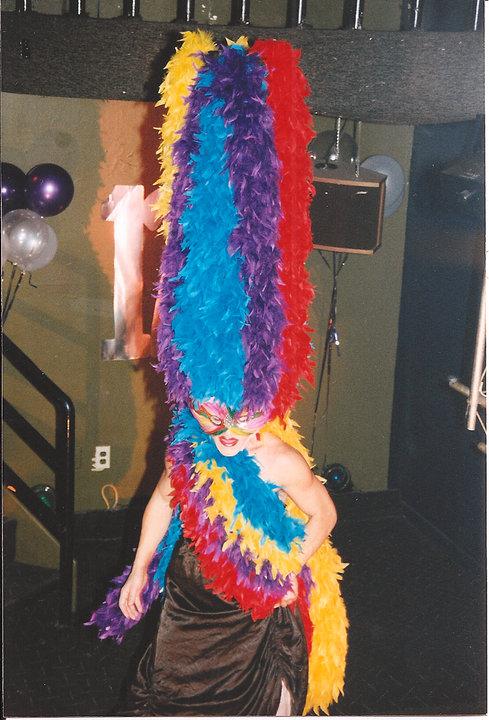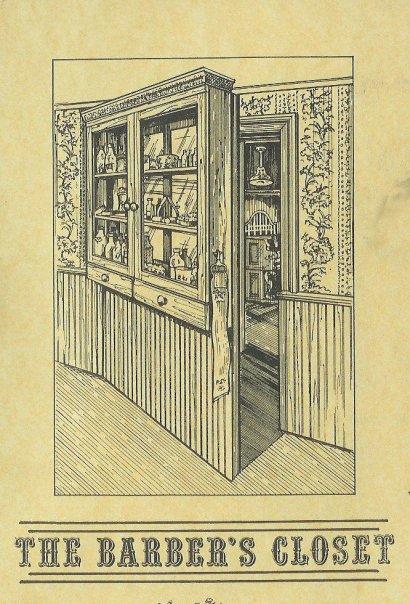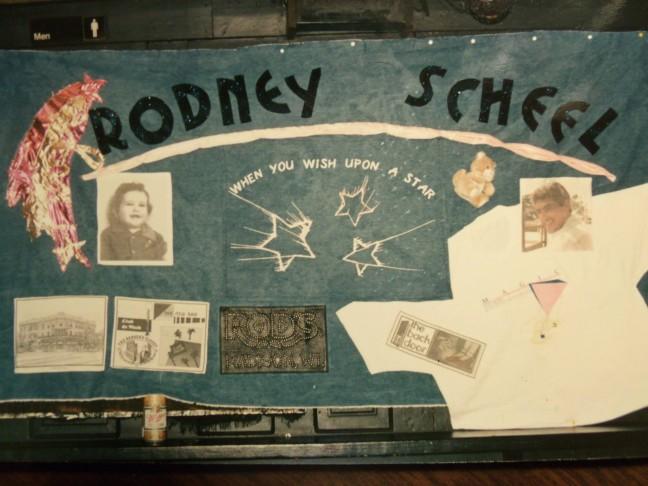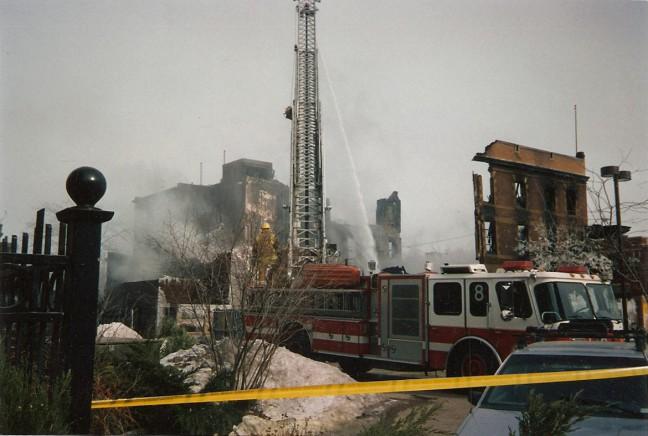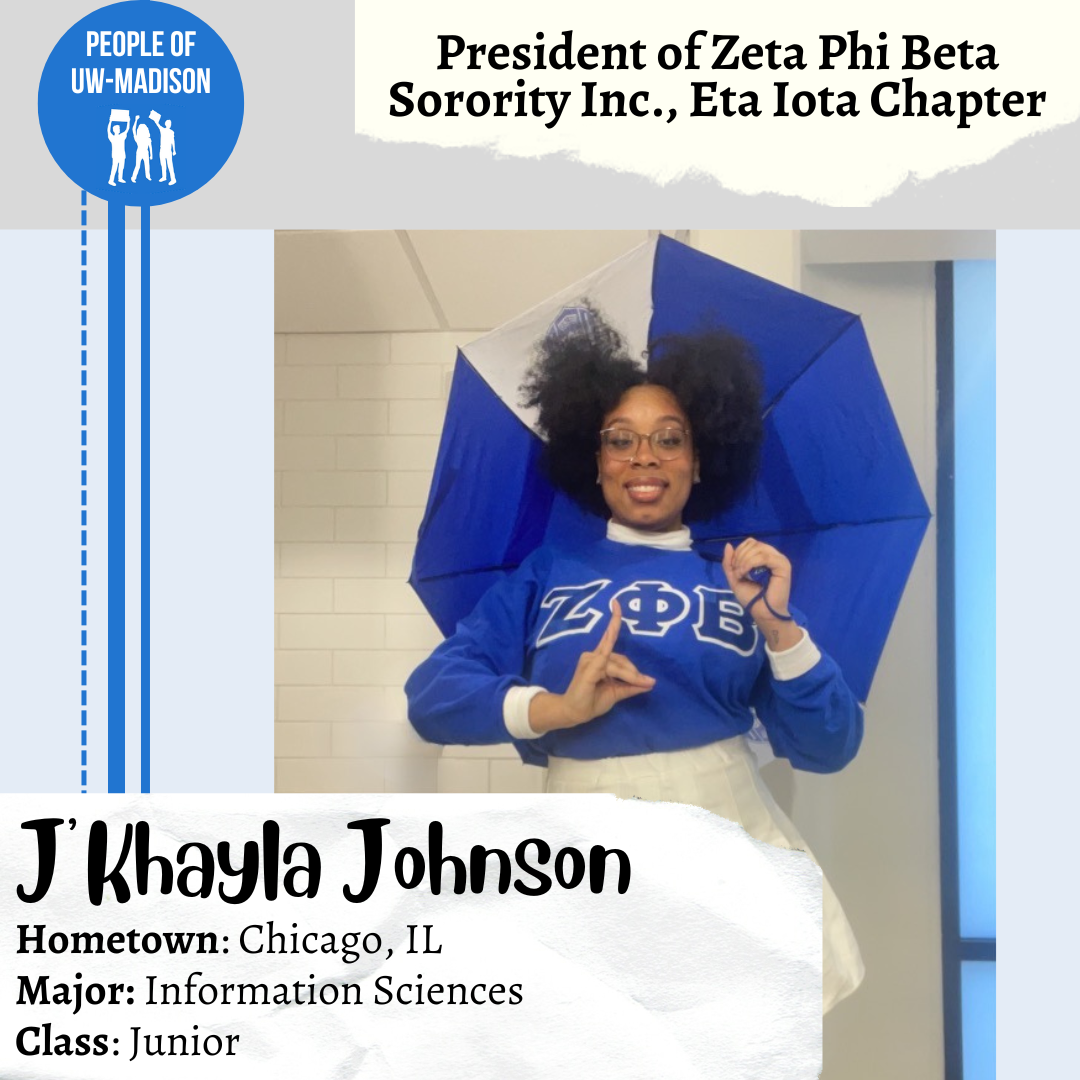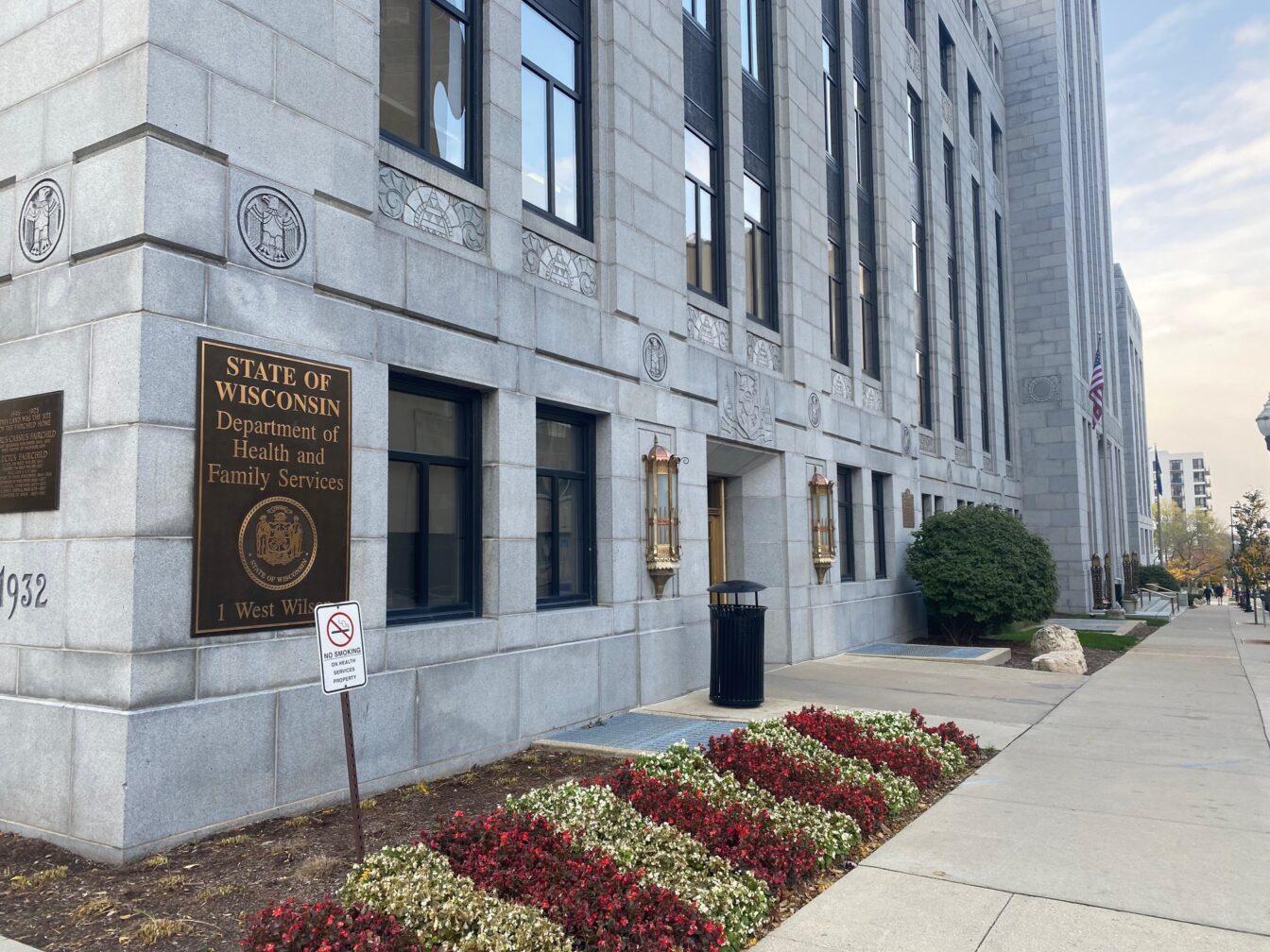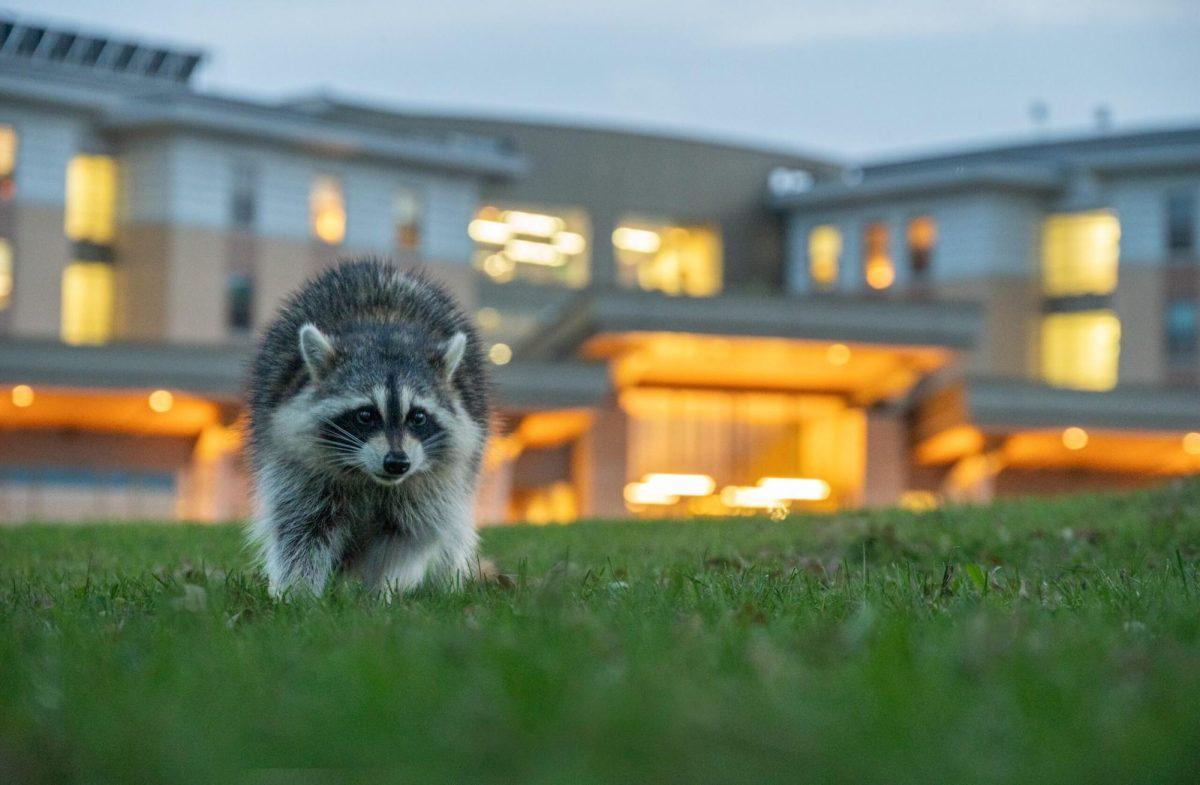An unassuming Cafe Palms employee allegedly emptied the evening’s cigarette butts into the trash the night of Feb. 18, 1996, not realizing the mistake would lead to the destruction of nearly a century old Madison landmark. A few days later, after the embers had burned out, the rainbow colors of a lone gay pride flag were the only features distinguishable from the rubble.
Almost 20 years after the demise of this local LGBTQ mecca, the owner of Hotel Washington looked over the gas station that had once been his property. It was a place of refuge and community building for Madison’s gay population and would never be replicated again.
Now, the Hotel has become something of an enigmatic LGBTQ legend. Customers and employees remember it fondly, and the new generation of Madison LGBTQ looks back with reverence and longing for a place as diverse and inclusive.
A place for all, every night
Consisting of a few bars — two gay oriented (Rod’s and The New Bar) and one straight (The Barber’s Closet)— a music venue (Club de Wash), a cafe (Cafe Palms) and guest rooms, the Hotel was more than just a physical gathering place. For many, its patrons and staff served as a family when their own had turned their backs.
Steve Starkey, executive director of Outreach LGBT Community Center and former customer, frequented the hotel and said it fulfilled every niche of the gay community at the time.
“Because it was such a big complex ,there was something for everyone. If you wanted to go out dancing, you could do that,” Starkey said. “If you wanted to go to a leather bar, you could do that. If you wanted to hear music, you could do that. If you wanted to go out and eat, there was the Cafe Palms. It was one-stop shopping.”
The Hotel was open 365 nights of the year and hosted events on holidays like Thanksgiving and New Years. Students and Madisonians whose families did not accept them at home for the holidays came to Rod’s and the New Bar for Hotel traditions. They hosted turkey bingo on Thanksgiving where a whole turkey was dropped onto a giant bingo board.
Each business in the Hotel had special event nights at least once a month. Greg Scheel, who took over the Hotel after his brother, Rodney Scheel, died of AIDS in 1990, said the events ranged from formal drag competitions to adaptations of classic plays, like “Wizard of Rod’s.” Most of the proceeds went to nonprofits like AIDS Support Network.
The Hotel also participated in Chicago and Madison’s pride parades each year with ostentatious renderings of the Hotel built onto the sides of trucks. By the ‘90s, thanks to Rodney Scheel’s relentless promotion, the complex gained esteem across the Midwest.
One of their biggest events was a yearly gay field day called the MAGIC Picnic. It started as a small picnic for customer appreciation but by the end it hosted thousands of people. Non-profits worked the beer and food tables in exchange for all the funds earned.
https://www.youtube.com/watch?v=Ebuz0cTHnco
The era of leather chaps and disco dancefloors
The history of the Hotel complex would not be complete without rewinding to the disco era of 1972, when the Hotel’s first owner, Rodney Scheel, opened The Back Door. The Back Door was an underground bar on Park Street that was the first in Madison to call itself a gay establishment.
Not surprisingly, the hostile climate toward the LGBTQ community manifested itself just outside the bar’s premises. Rodney Scheel often found himself defending the very patrons who came to his establishment for acceptance and gained quite a few black eyes warding off belligerent men from the bar across the street in the process, Greg Scheel said.
Working off the success of The Back Door, Rodney Scheel soon had his eye on the dilapidated Hotel, which at the time was comprised of about 60 boarding rooms. Rodney Scheel purchased the Hotel in 1975, renovated it and opened The Barber’s Closet, a straight bar hidden behind what looked like a barber’s closet, that same year.
Four years later, Rodney Scheel opened Rod’s in the basement. It was a leather-levi bar that proudly proclaimed itself a “gay bar.” Greg Scheel described the bar as having an “old basementy feel.”
“If you did come in [to Rod’s] and you had underwear on, you would probably have them torn off and they would get tied up on the pipes,” he said.
In the next few years, Rodney Scheel worked tirelessly to renovate and open The New Bar, followed shortly by the Club De Wash music venue and Cafe Palms.
It became a network of nightlife that drew people from across the Midwest and attracted all types of LGBTQ and straight people. Many of the customers were students and people in their formative years coming to terms with their identity, who took refuge in the complex’s maze of stairs.
“If you were gay and you didn’t want anybody to know you were gay, you went into one of the straight clubs and then you would sneak into the back staircase to go into one of the gay clubs,” Greg Scheel said.
In February 1990, Greg Scheel and his parents returned home from vacation to find Rodney Scheel in the hospital with AIDS. He passed in July of the same year. Rodney Scheel was part of a contingent of Hotel clientele and employees who succumbed to the AIDS epidemic around that time. When each passed, friends and staff from the Hotel made them a panel for the Names Project memorial quilt. Employees who fell ill and could not support themselves anymore moved into the Hotel rooms.
Rodney Scheel had traditionally been the catalyst of community gathering, organizing special events and bar crawls across the Midwest. But when he passed, his legacy continued. A non-profit housing option for people living with AIDS opened in Madison called the Rodney Scheel House and the Hotel continued to give funds from special events to gay rights groups in Wisconsin. Staffers carried on Rodney Scheel’s tradition for years successfully.
Until the fire in 1996.
The fire that began in a wastebasket in Cafe Palms destroyed the entire building. Students gathered to watch the flames fizzle out and after the damage was done, the community mourned the loss of its central hub.
“There were large memorials that sprang up at the Hotel, flowers and sympathy cards,” Greg Scheel said. “Thousands and thousands of people have come through the Hotel and most of them were young and just coming out in very formative years. I think so many had fond memories.”
From one big family to a disjointed community
Within two years, the MAGIC picnic ended and Hotel customers scattered to gay establishments across Madison in small groups and cliques. Many went to Club Five off the Beltline, but it was more inaccessible to students and it mostly served just one niche of the gay community like most other bars in Madison.
“Now it seems like people connect to a bar or a church or a theater group or a sports team,” Starkey said. “Then there is such a diversity of organizations and groups that it’s a little bit fragmented.”
Amber Halverson, bar manager of Plan B, a gay bar located on Williamson Street, remembers driving all the way from Baraboo on 18+ Tuesday nights because it was the only place they could go.
When she moved to Madison, she felt excluded by the tightly knit cliques in the community and struggled to find friends in such a disconnected landscape.
But Plan B hopes to fill in some of the cracks and unite all kinds of LGBTQ people together under their roof, Halverson said. They recently added drag king shows, male and female go-go dancers, safe zumba and a comedy show hosted by a transgendered woman in an attempt to make a more inclusive environment. They are also planning on opening a dance floor upstairs to let more people in.
But Halverson still looks back on the Hotel with longing.
“It just seems to be another one of those stories we’ll hear about the ’60s, ’70s and ‘80s,” Halverson said. “It seemed like the crazy time when anyone could be a rockstar.”








